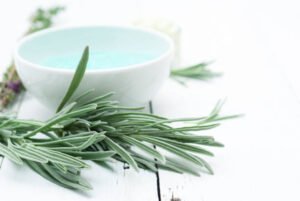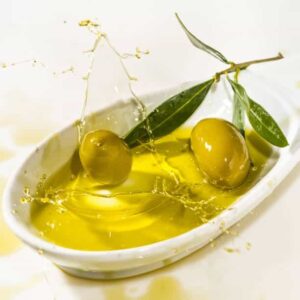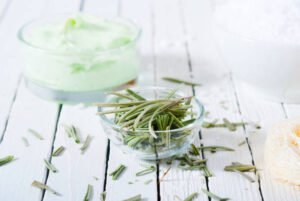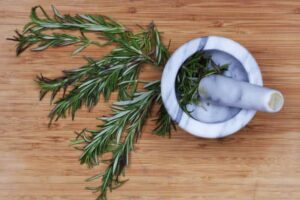Nourishing Hair Mask with Rosemary Infusion and Olive Oil: A Natural Boost for Healthy Hair
Maintaining healthy and lustrous hair is a common goal for many individuals. While there are numerous commercial hair care products available, natural remedies have gained popularity due to their potential benefits and minimal side effects. One such remedy is a nourishing hair mask made with rosemary infusion and olive oil. This article explores the science-backed benefits of rosemary and olive oil for hair health and provides a simple recipe for an effective hair mask.
Benefits of Rosemary for Hair Health:
Rosemary (Rosmarinus officinalis) is an aromatic herb widely known for its culinary and medicinal properties. It contains several bioactive compounds, including rosmarinic acid, caffeic acid, and ursolic acid, which exhibit antioxidant, anti-inflammatory, and antimicrobial properties. Scientific studies have highlighted the following benefits of rosemary for hair health:
1. Stimulates Hair Growth
Improves Scalp Circulation: Rosemary contains ursolic acid, which is known to enhance blood circulation to the scalp. Improved blood flow ensures that hair follicles receive more nutrients and oxygen, which are essential for hair growth. This can result in the stimulation of hair follicles and promote new hair growth.
Prevents Hair Loss: By strengthening the hair roots, rosemary can help in reducing hair loss. The improved blood circulation also helps in keeping the hair follicles active and healthy, thus reducing the rate of hair fall.
Prolongs Hair Growth Phase: The herb may extend the anagen (growth) phase of the hair cycle, leading to longer and thicker hair. This effect can help individuals who experience premature hair thinning or baldness.
2. Strengthens Hair
Nutrient-Rich: Rosemary is packed with essential nutrients, including vitamins A, C, and B6, and minerals such as iron, calcium, and magnesium. These nutrients are crucial for maintaining the strength and health of hair strands.
Reduces Breakage: The strengthening properties of rosemary help in fortifying the hair shaft, reducing breakage and split ends. Stronger hair strands mean less damage and healthier-looking hair over time.
Enhances Hair Elasticity: By improving the elasticity of hair fibers, rosemary makes hair less susceptible to breaking under stress. This is particularly beneficial for individuals who style their hair frequently or use heat tools.
 3. Reduces Dandruff
3. Reduces Dandruff
Antimicrobial Properties: Rosemary has strong antimicrobial properties, making it effective against bacteria and fungi that cause dandruff. Regular use can help in maintaining a clean and healthy scalp environment, preventing the buildup of flakes.
Soothes Scalp Irritation: The anti-inflammatory properties of rosemary help in soothing an itchy and irritated scalp. This can significantly reduce the discomfort associated with dandruff and other scalp conditions.
Balances Scalp Oil Production: Rosemary can help regulate the production of oil on the scalp, preventing it from becoming too oily or too dry. Balanced oil production is key to preventing dandruff and maintaining overall scalp health.
4. Adds Shine
Natural Oils: Rosemary is rich in essential oils that add a natural shine to hair. These oils coat the hair strands, making them appear glossy and vibrant without the need for artificial shine-enhancing products.
Smoothes Hair Cuticles: By sealing the cuticles of the hair, rosemary helps in reducing frizz and enhancing the hair’s natural luster. Smooth cuticles reflect light better, giving the hair a shiny and healthy appearance.
Moisturizes Hair: Rosemary’s moisturizing properties help in preventing dryness and brittleness, which can dull the hair. Well-moisturized hair retains its shine and smooth texture, looking more vibrant and healthy.
5. Delays Graying
Antioxidant Properties: Rosemary is rich in antioxidants, which help in neutralizing free radicals that cause cellular damage and aging, including premature graying of hair. By combating oxidative stress, rosemary helps in maintaining the natural color of hair for a longer time.
Stimulates Melanin Production: Some studies suggest that rosemary may help in stimulating the production of melanin, the pigment responsible for hair color. Increased melanin production can delay the onset of gray hairs and maintain a youthful hair color.
Improves Overall Hair Health: Healthier hair is less likely to gray prematurely. By improving the overall condition of the hair and scalp, rosemary helps in delaying the natural aging process of hair.
Benefits of Olive Oil for Hair Health:
Olive oil (Olea europaea) is a widely used natural oil known for its nourishing and moisturizing properties. It is rich in monounsaturated fatty acids, antioxidants, and vitamins, which offer several benefits for hair health:
Deep Conditioning
Olive oil is renowned for its exceptional moisturizing properties, making it an excellent choice for deep conditioning treatments. The oil is rich in essential vitamins such as A and E, as well as antioxidants that help repair and strengthen the hair. When applied to the hair, olive oil penetrates the hair shaft and locks in moisture. This is particularly beneficial for those with dry, brittle, or damaged hair, as the deep hydration helps to restore the hair’s natural texture and elasticity. Over time, regular use of olive oil can lead to softer, more manageable hair that is less prone to breakage and split ends.
Reduces Frizz and Adds Shine
Frizz can be a major concern for many people, especially those with curly or wavy hair. Olive oil works wonders in smoothing the outer cuticle layer of the hair, which is often responsible for frizz when it becomes raised. The fatty acids in olive oil create a protective barrier around the hair strands, helping to seal in moisture and protect against humidity. This results in smoother, shinier hair with a natural gloss. Additionally, the oil’s light-reflective properties enhance the appearance of shine, giving the hair a healthy, polished look.
Strengthens Hair
Hair strength is crucial for maintaining long, healthy hair. Olive oil contains several nutrients, including vitamins E and K, that are essential for hair strength and growth. These vitamins help to nourish the hair follicles and the scalp, promoting healthier hair from the roots. Regular application of olive oil can help fortify the hair shaft, making it more resilient to damage from styling tools, chemical treatments, and environmental factors. Stronger hair is less likely to break, split, or become damaged, leading to overall improved hair health and growth.
Scalp Health
A healthy scalp is the foundation for healthy hair. Olive oil possesses anti-inflammatory and antibacterial properties that can greatly benefit the scalp. It helps to soothe and moisturize a dry, irritated scalp, reducing symptoms of dandruff and itching. By balancing the scalp’s natural oils, olive oil prevents the overproduction of sebum, which can lead to oily hair and scalp conditions. Massaging olive oil into the scalp also improves blood circulation, which is essential for delivering nutrients to the hair follicles and promoting hair growth.
Improves Elasticity
Hair elasticity is a key indicator of hair health. Elasticity refers to the hair’s ability to stretch and then return to its original length without breaking. Olive oil helps improve the elasticity of hair by infusing it with moisture and essential nutrients. This makes the hair more flexible and less prone to breakage when styled or manipulated. Improved elasticity also means that hair can better withstand heat styling and other physical stresses, reducing the likelihood of damage. Over time, this leads to stronger, healthier hair that retains its natural bounce and vitality.
Recipe:
Ingredients
- Olive Oil:
- Type: Extra virgin olive oil is the best choice due to its high content of vitamins, antioxidants, and healthy fats.
- Rosemary:
- Type: Fresh rosemary leaves are preferred, but dried rosemary can also be used.
- Additional Ingredients (Optional):
- Honey: Adds extra moisture and shine.
- Aloe Vera Gel: Soothes the scalp and adds additional hydration.
- Essential Oils (like lavender or peppermint): Enhance the fragrance and provide additional scalp benefits.
 Preparation Method
Preparation Method
Step 1: Prepare the Rosemary Infusion
- Gather Fresh or Dried Rosemary:
- If using fresh rosemary, take about 4-5 sprigs. For dried rosemary, use about 2-3 tablespoons.
- Boil Water:
- Bring about 2 cups of water to a boil in a small pot.
- Infuse the Rosemary:
- Once the water is boiling, add the rosemary. Reduce the heat and let it simmer for about 15-20 minutes.
- After simmering, remove the pot from the heat and let the rosemary steep in the water until it cools to room temperature.
- Strain the rosemary leaves out and reserve the infused water. This infusion will serve as the base for the hair mask.
Step 2: Mix the Hair Mask
- Combine Olive Oil and Rosemary Infusion:
- In a mixing bowl, combine 1/4 cup of extra virgin olive oil with 1/2 cup of the cooled rosemary infusion.
- Mix thoroughly to ensure the olive oil and rosemary infusion are well blended.
- Add Optional Ingredients (if desired):
- Honey: Add 1-2 tablespoons of honey to the mixture. Honey is a natural humectant that helps retain moisture in the hair.
- Aloe Vera Gel: Add 2-3 tablespoons of aloe vera gel for its soothing and hydrating properties.
- Essential Oils: Add a few drops of essential oils like lavender or peppermint for their therapeutic benefits and pleasant scent.
Step 3: Application
- Prepare Your Hair:
- Start with dry or slightly damp hair. It’s easier to apply the mask if the hair is not soaking wet.
- Apply the Mask:
- Section your hair to ensure even application. Using your fingers or a brush, apply the mask starting from the scalp and working your way down to the tips of your hair.
- Massage the mixture into your scalp gently to stimulate blood circulation and ensure the roots are well nourished.
- Cover and Let Sit:
- Once your hair is fully coated with the mask, cover your hair with a shower cap or a plastic wrap. This helps to trap heat and allows the mask to penetrate deeply.
- Leave the mask on for at least 30 minutes. For a more intensive treatment, you can leave it on for up to an hour.
Step 4: Rinse and Shampoo
- Rinse Thoroughly:
- Rinse your hair thoroughly with lukewarm water to remove the mask. Ensure all the oil is washed out.
- Shampoo and Condition:
- Follow up with your regular shampoo and conditioner to remove any remaining residue and to add extra softness and manageability.
- Dry and Style:
- Let your hair air dry or style as usual. You’ll notice your hair feels softer, shinier, and more nourished.
 Tips and Tricks for Using Mask
Tips and Tricks for Using Mask
Creating and using a hair mask with rosemary infusion and olive oil can be even more effective with some additional tips and tricks. These suggestions will help you maximize the benefits and ensure a smooth application process.
Tips for Preparing the Hair Mask
- Quality Ingredients:
- Always use high-quality, extra virgin olive oil and fresh or organic rosemary for the best results. The fewer the chemicals and additives, the more beneficial the mask will be.
- Proper Infusion:
- When making the rosemary infusion, ensure that the water is hot enough to extract all the beneficial properties from the rosemary. Letting the infusion cool naturally allows it to retain more nutrients.
- Consistent Mixture:
- Stir the olive oil and rosemary infusion mixture thoroughly before applying to ensure the ingredients are well-blended. This helps in even application and maximizes the mask’s effectiveness.
Tips for Applying the Hair Mask
- Detangle Before Application:
- Detangle your hair with a wide-toothed comb before applying the mask. This ensures the mask can be distributed evenly and reduces the risk of breakage.
- Warm the Mixture:
- Slightly warm the olive oil before mixing it with the rosemary infusion. Warm oil can penetrate the hair shaft more effectively, providing deeper conditioning.
- Even Application:
- Use a hair dye brush or your fingers to apply the mask evenly. Start from the scalp and work your way to the ends to ensure every strand is coated.
- Focus on the Ends:
- Pay extra attention to the ends of your hair, as they are often the driest and most damaged part. Ensure they are thoroughly coated with the mask.
Tips During the Treatment
- Use Heat:
- For better absorption, wrap your hair in a warm towel after applying the mask. The heat helps to open the hair cuticles, allowing the nutrients to penetrate deeper.
- Time It Right:
- Allow the mask to sit for at least 30 minutes. For an intensive treatment, you can leave it on overnight. Just be sure to cover your hair with a shower cap and place a towel on your pillow to avoid stains.
- Gentle Rinse:
- When rinsing out the mask, use lukewarm water. Hot water can strip the hair of its natural oils, counteracting the benefits of the mask.
Post-Treatment Tips
- Double Shampoo:
- If you find your hair feels too oily after the first wash, shampoo it again to ensure all the oil is removed. Follow with a conditioner to lock in the moisture.
- Air Dry:
- Whenever possible, let your hair air dry after rinsing out the mask. Heat from blow dryers can damage your hair and negate some of the moisturizing benefits.
- Frequency:
- Use this hair mask once a week for dry or damaged hair. For normal hair, using it every two weeks should suffice to maintain softness and shine.
- Storage:
- If you have leftover rosemary infusion, store it in the refrigerator and use it within a week. This infusion can also be used as a hair rinse for added benefits.
- Scalp Massage:
- Incorporate a gentle scalp massage when applying the mask. This stimulates blood circulation, which can promote healthier hair growth and a healthier scalp.
By following these tips and tricks, you can enhance the effectiveness of your rosemary infusion and olive oil hair mask.
Conclusion:
Natural remedies have long been used for hair care, and the combination of rosemary infusion and olive oil in a nourishing hair mask offers several scientifically supported benefits. Rosemary promotes hair growth and reduces hair loss, while olive oil deeply conditions, strengthens, and protects the hair shaft. By incorporating this simple and natural hair mask into your hair care routine, you can provide your locks with the nourishment they need for improved health and vitality.
Contraindications
While the nourishing hair mask with rosemary infusion and olive oil is generally safe for most individuals, it’s important to be aware of potential contraindications or allergies. Here are a few considerations:
Allergies:Some individuals may have allergies or sensitivities to rosemary or olive oil. Before applying the hair mask, perform a patch test on a small area of skin to check for any adverse reactions. Discontinue use if you experience any redness, itching, or irritation.
Scalp Conditions:If you have any pre-existing scalp conditions, such as dermatitis or psoriasis, it’s advisable to consult with a dermatologist or trichologist before using the hair mask. They can provide personalized guidance based on your specific condition.
Sensitivity to Essential Oils:Rosemary is an essential oil, and some people may be sensitive to its potent aroma or the constituents it contains. If you experience headaches, dizziness, or respiratory discomfort, discontinue use and seek medical advice.
Precautions during Pregnancy or Medical Conditions:If you are pregnant, nursing, or have any underlying medical conditions, it’s recommended to consult with your healthcare provider before using any new hair care products, including natural remedies.Before using this hair mask, it is recommended to consult a specialist or hair care professional. They can assess your individual hair and scalp condition, provide personalized advice, and ensure that the ingredients in the mask are suitable for your specific needs. Consulting a specialist can help you make informed decisions and tailor your hair care routine for optimal results and safety.Remember, individual experiences and reactions may vary. It’s always best to err on the side of caution and seek professional advice if you have any concerns or uncertainties.Click here if you want to see more articles from the
beauty category.References:
- Panahi Y, et al. (2015). Rosemary oil vs minoxidil 2% for the treatment of androgenetic alopecia: a randomized comparative trial. DOI: 10.2147/CCID.S100322
- Oh JY, et al. (2013). Peppermint oil promotes hair growth without toxic signs. DOI: 10.5021/ad.2013.25.2.265
- Murugusundram S. (2009). Serenoa repens: does it have any role in the management of androgenetic alopecia? DOI: 10.4103/0974-7753.66909
- Khallouki F, et al. (2012). Anti-inflammatory and analgesic activities of aqueous extracts and sesquiterpene lactones from Laurus nobilis L. DOI: 10.1016/j.phymed.2012.01.018
- Guimarães AG, et al. (2013). Antimicrobial effect of the essential oil of Rosmarinus officinalis L. on Candida albicans. DOI: 10.1590/S0102-695X2013000600005
- Seyed Mohammad Bagher Hashemi , Aliakbar Gholamhosseinpour , Francisco J Barba – Rosmarinus officinalis L. Essential Oils Impact on the Microbiological and Oxidative Stability of Sarshir (Kaymak) DOI:10.3390/molecules28104206

 3. Reduces Dandruff
3. Reduces Dandruff
 Preparation Method
Preparation Method Tips and Tricks for Using Mask
Tips and Tricks for Using Mask 

 3. Reduces Dandruff
3. Reduces Dandruff
 Preparation Method
Preparation Method Tips and Tricks for Using Mask
Tips and Tricks for Using Mask